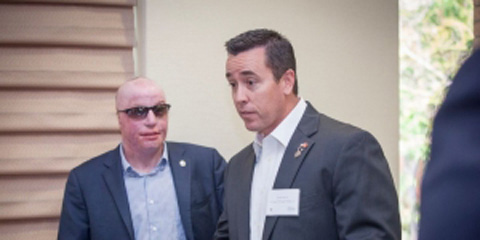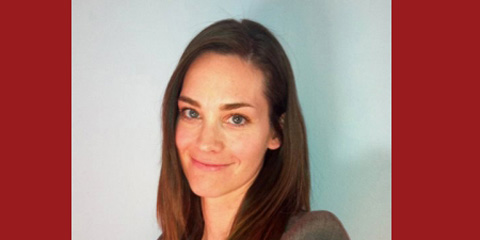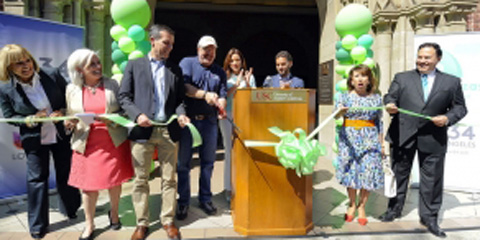News Archive
-

In a collaborative effort to support the diverse needs of veterans and their families, the Center for Innovation and Research on Veterans & Military Families (CIR) at the USC School of Social Work has received funding from the Orange County Community Foundation and UniHealth Foundation to launch of a one-of-a-kind survey to assess the needs of veterans in Orange County, Calif.
-

Susan Hess, an adjunct lecturer at the USC School of Social Work, has been honored by the Los Angeles City Domestic Violence Task Force with the Marjorie Braude Award for her work in bringing the Trauma Informed Nonviolent Standards of Care (TINSOC) collaborative together.
TINSOC began in 2012, when Hess, who is also director of intimate partner violence programming at Echo Parenting & Education in Los Angeles, began to assemble a group of domestic violence shelters and agencies to develop and implement a trauma-informed, nonviolent approach to care.
-

Los Angeles entertainment attorney Dennis Roach has joined the USC School of Social Work’s Board of Councilors, an advisory board composed of professional, academic and community leaders who work toward the advancement of the vision and mission of the school.
As the father of a current Master of Social Work student, Roach understands the importance of supporting the work students do now as interns and the work they will do as professionals once they graduate.
-

Because of medical advances, this generation of post-9/11 veterans is now surviving injuries once considered fatal and returning to communities that may be ill-prepared to care for them.
A recent summit convened by the Gary Sinise Foundation and the USC School of Social Work’s Center for Innovation and Research on Veterans and Military Families brought together a diverse set of experts in physical, psychological and community needs to discuss the challenges faced by severely wounded warriors and their caregivers.
-
There is no universal way to support student veterans with mental health issues but, generally speaking, providing a safe environment on college and university campuses has proven effective.
That information, along with highlighting specific transition challenges and military stigmas, was presented during a USC conference aimed at supporting college and university students with mental illness.
-

In recognition of her contributions to the prevention and treatment of child abuse and neglect through the use of “big data,” Emily Putnam-Hornstein has received the Commissioner’s Award from the Administration on Children, Youth and Families.
-

Feria Financiera attracted thousands to USC who were eager to gain information on college aid, home financing, stock investments, consumer protection and resources for small businesses.
-

“I want to shake your assumptions about why the system works as it does.”
Those are the words of former U.S. Secretary of Labor Robert Reich early in the documentary film “Inequality for All,” which was shown at the USC School of Social Work as part of the university’s Visions and Voices arts and humanities initiative.
-

Some people donate to their alma mater once or twice, to make a big mark or help during special fundraising drives.
But for Christina Stoney, who earned her Master of Social Work from the USC School of Social Work in 1993, giving is an ongoing commitment. She has made a gift nearly every year since graduation — and when she skips a year, she often gives double the next year to make up for it.
Stoney, who is based in Ventura County, said that her actions are just one way to give back to the school that contributed so significantly to her life.
-

For Janessa Hatch, being a Trojan meant she never had to miss a class, despite moving with her family from Utah to Georgia and then Alaska.
Hatch is working toward her USC master’s degree in social work online. The program boasts the largest enrollment — 1,900 current students — of USC’s online offerings.
“It was an opportunity to attend live classes from a top social work program from virtually anywhere,” said Hatch, whose husband is in the military. Hatch has worked with refugees in Salt Lake City and provided services in Haiti after the devastating 2010 earthquake.